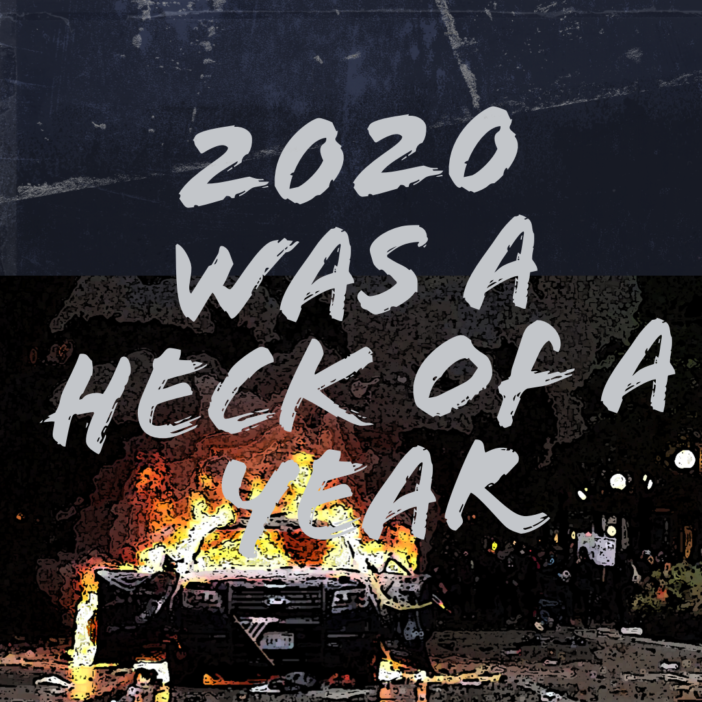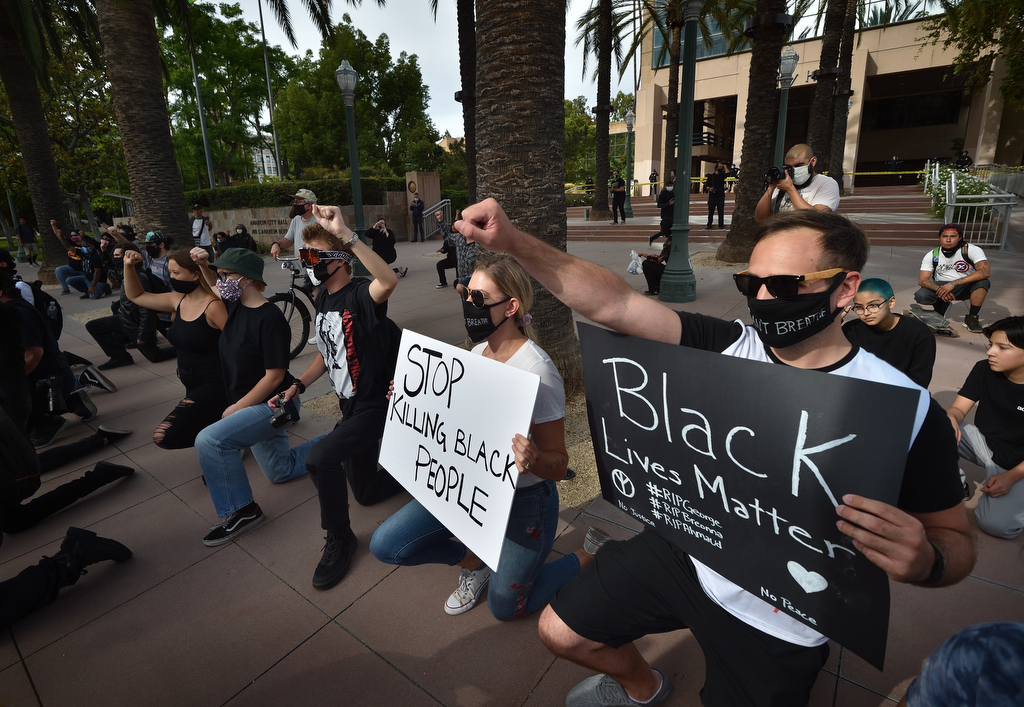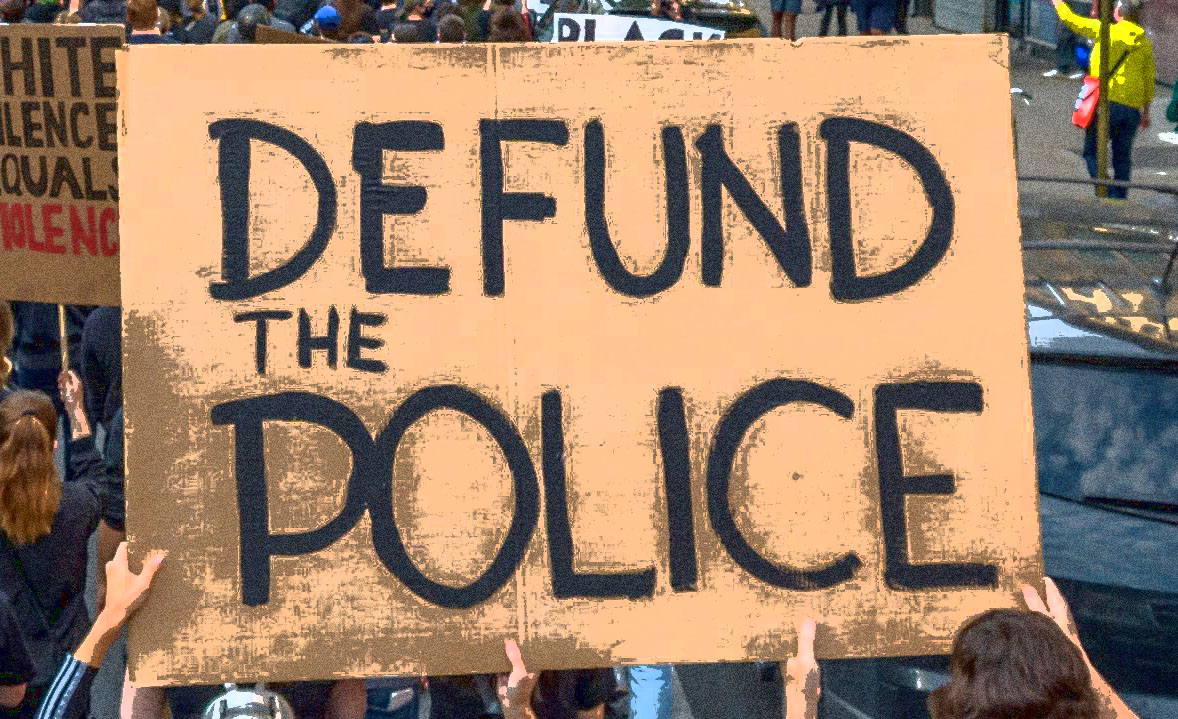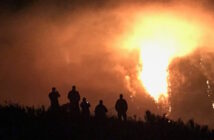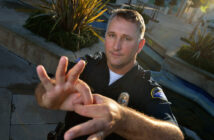2020 will go down as one of the most challenging and significant years in American law enforcement history. Unlike 2001, the year when the 9/11 terrorist attacks occurred, 2020 featured a multitude of events that challenged law enforcement.
Let’s take a look at the events of the past 12 months.
1. A worldwide epidemic started in early 2020. Within months the virus had spread around the world, including the United States. I wonder if any police agencies had a pandemic contingency plan ready to go.

Pasadena Police Officers are checked for their temperature before their shift a new policy during the COVID-19 pandemic at the Pasadena Police Department on Monday, April 13, 2020. Photo by James Carbone/Behind the Badge
As the illness progressively spread across the country, municipal, state, and federal agencies took actions to try to limit the spread. Law enforcement leaders were caught between trying to get the public to comply with edicts for the collective good and recognizing the need to protect individual freedoms. In most areas of the country, agencies allowed for voluntary compliance and only took action when absolutely necessary.
Many first responders were exposed to the virus on the job. Thankfully most recovered, but a handful made the ultimate sacrifice and paid with their lives.

“On behalf of the president of the United States and the United States Marine Corps, we therefore present this flag on behalf of Terrell.”
Funeral Director Edward Washington presents the American flag that was draped over the casket of RCSD Dep. Terrell Young to his wife, Marie, at the conclusion of Dep. Young’s memorial service.
Photo by Steven Georges/Behind the Badge
2. On May 25, 2020, a police officer in the City of Minneapolis was arresting a suspect for passing counterfeit currency. In an effort to overcome the suspect’s resistance, the officer knelt on his neck as the man pleaded with the officer just before he stopped breathing and later died. The heart wrenching video was shared on social media and across the country the name George Floyd became synonymous with police brutality.
Demonstrations and protests took place and spread like wildfire across the country. The demonstrations occurred in even the smallest communities and later around the world. Many of the protests became violent and collectively cost millions in property damage. Police were criticized for both overreacting and underreacting to the protests.
Approval ratings for law enforcement reached their lowest levels since the polling Gallup was started. The greatest divides were evident amongst people of color. Body camera deployment amongst departments became the highest priority.
I was told many years ago, “perception, right or wrong, is real in its consequences.” Decades of trust of the police will have to be re-established.
3. Police departments also had to deal with a contentious election where demonstrations occurred in almost every city in the country. Most often, departments were deployed to keep the peace. Supporters of both parties would often come into conflict with each other. Once again, police were criticized by both sides for either taking action or not taking action.
The phrase “defund the police” was birthed and became a movement. The collective thought was there are other means to deal with society’s problems than by calling the police. The reality is that few making the call to redirect funding have any idea what police officers do day to day. The actions critics found most objectionable are only a small part of what police do. So, what do supporters of this movement want the police to stop doing? Defunding means police officers will stop doing something most communities expect them to do.
In the end, police agencies will have to pivot and work hard at engaging and reconnecting with their communities — especially communities in which residents feel the most disenfranchised and are distrustful of the police.
The economic realities of life with COVID-19 are creating a state of defunding for many agencies across the country. Lack of revenue at the municipal and county level has police staff strategizing on how to do their jobs with fewer people and fewer resources. The command staff at law enforcement agencies will have to decide “what will we stop doing.”
4. Then there is the issue of rising crime, especially homicides. In cities across America collectively there has been a 36 percent rise in homicides. But this is hit and miss. Some cities are seeing double-digit increases while others are at or below historical trends. The trend also defies political affiliation.
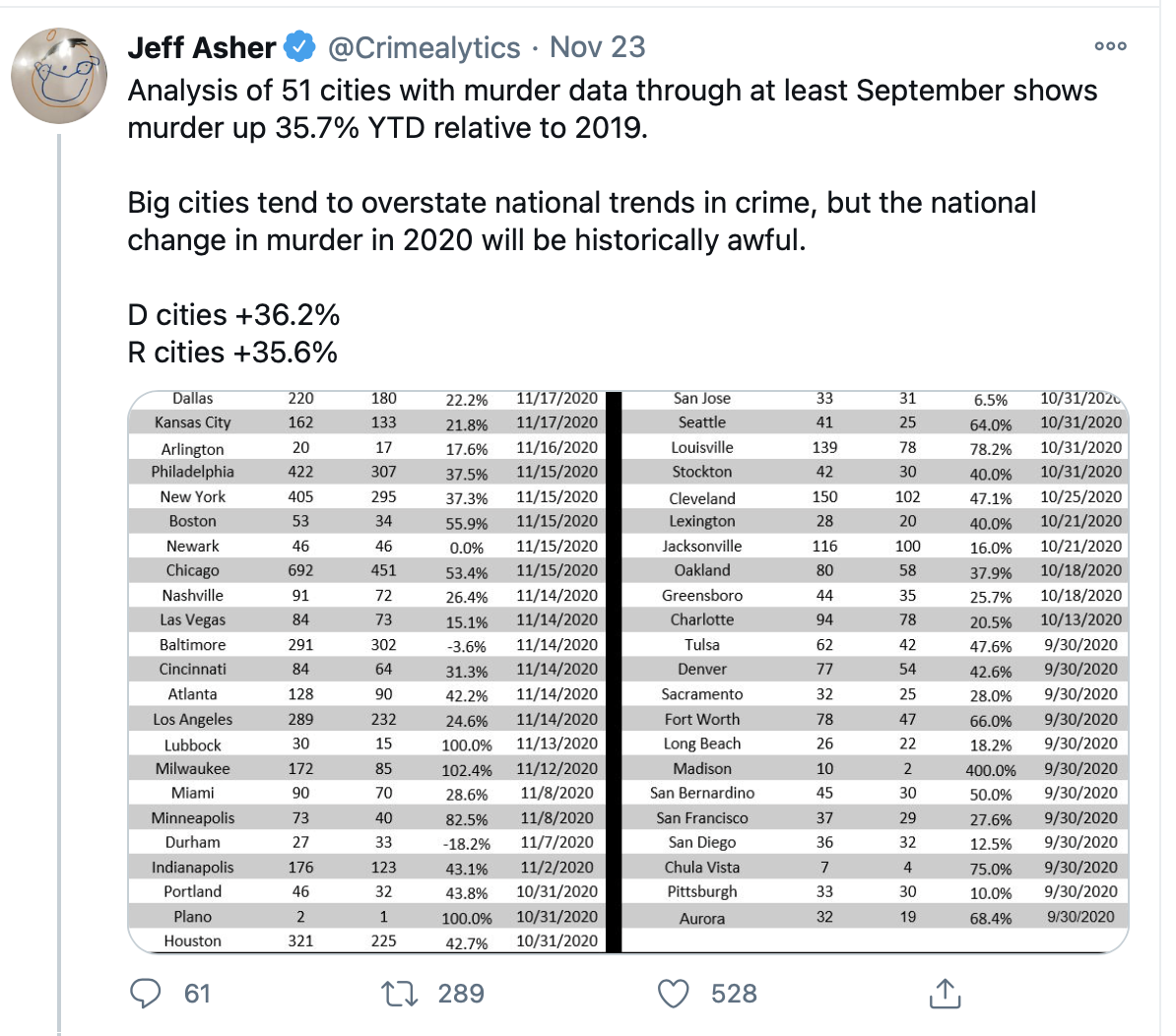
Data shows the rising rate of homicides in major cities across America. Up to 35% in some of America’s major cities. No one seems to be able to explain why.
Theories abound. The pandemic has resulted in a social breakdown of some sort in communities. Lack of full-time employment and school being out of session has created an environment in which crime can thrive.
De-policing is another area that should be considered. Did nationwide anti-police sentiment create an environment where police officers have become disengaged from proactive enforcement efforts? Anecdotal observations will quickly tell you morale reached an all time low this past year.
Whatever the cause, it would appear for many communities that at a time when police are most needed there is little political will to support them.
I won’t predict what 2021 will bring other than this will continue to be a challenging time for the law enforcement profession. Forward progress will require communities, police agencies and politicians to work together this upcoming year in order to make things better for all of us. Not doing so will only result in our communities becoming less safe and less livable.
 Behind the Badge
Behind the Badge
